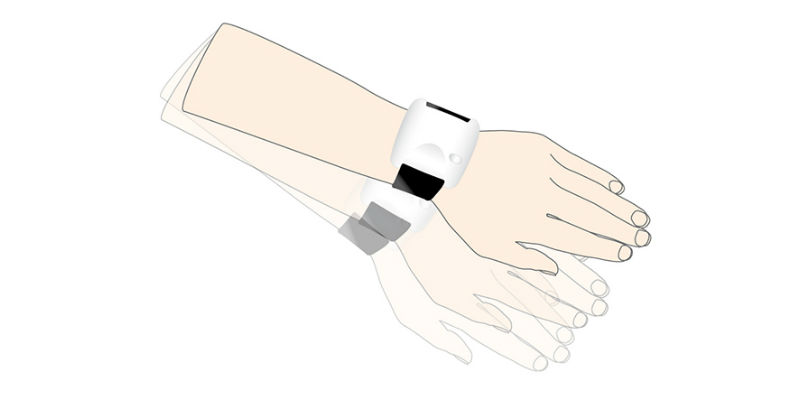A clinical research study will explore the impact of continuous objective measurement of movement in patients with Parkinson’s disease using Global Kinetics Corp.’s Personal KinetiGraph (PKG) movement recording system. Global Kinetics, developer of the PKG mobile technology, will collaborate with the National Parkinson Foundation (NPF) in the clinical trial.
The PKG, a wrist-worn device that automatically records motion data over a period of 6 days, provides a precise, objective assessment of changes in mobility in patients with diseases and conditions that affect motor skills.
Physicians can download detailed information about the patient’s symptoms within minutes, identifying changes and trends that can be important considerations in the diagnosis and treatment of Parkinson’s disease. The device can also alert patients when it’s time to take medication as prescribed and the patient can acknowledge medication taken using the device.

The Personal KinetiGraph (PKG) movement recording is a tool that doctors can use as part of their treatment and management program for patients with movement disorders. (Image courtesy Global Kinetics Corp.)
Parkinson’s disease is a chronic, progressive movement disorder that affects the lives of at least one-half million patients in the United States. The main motor (or movement) related symptoms of Parkinson’s disease are bradykinesia (slowness of movement), rigidity, tremors and postural instability.
Other non-movement symptoms include speech and swallowing difficulties, cognitive impairment, depression or other emotional changes. As the disease progresses, symptoms may interfere with daily activities. Parkinson’s disease can be difficult to diagnose and currently there is no cure. However, a variety of medications and surgery can help ease the symptoms for some patients.
The new clinical research project will be a multi-center randomized controlled trial involving over 400 Parkinson’s patients conducted as part of the NPF Parkinson’s Outcomes Project Registry Study, which began in 2009 as a core element of the NPF’s Quality Improvement Initiative.
The study has grown to become a research collaboration among more than 20 leading movement disorder specialist centers and is now the largest clinical study of Parkinson’s disease with nearly 9,000 patients enrolled across four countries.
“Our goal … is to identify clinical practices that make a difference in patient outcomes,” Peter Schmidt, PhD, NPF senior VP, noted. The hope is that this new PKG study will show how we can use technology to provide information to guide better and more effective clinical decisions, helping more people with Parkinson’s to achieve the best outcomes they can, and that we will be able to translate this into other care settings.”
According to data thus far from NPF, there is currently wide variability in the use of different medicines and treatment plans in Parkinson’s disease. In planning for patient care, physicians typically rely on clinical evaluation, a patient’s self-reporting of symptoms and response to medication to guide therapy, potentially increasing the risk of inconsistent and diverse outcomes.
“Some Parkinson’s patients are thriving, while others are not,” Schmidt said. “Our goal is to determine what makes that difference.
The PKG system was FDA cleared in the U.S. in 2014.




